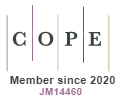Computational thinking and teacher education: challenges and didactic possibilities using the Scratch tool
DOI:
https://doi.org/10.5585/40.2022.21701Keywords:
computational thinking, teacher training, teaching and learning, ScratchAbstract
The article constitutes the process of appropriation of knowledge in the subject “Computational Thinking (PC) and Computer Science for Science and Mathematics Teachers” at UNESP/Bauru, in 2021. The objective was to relate the theoretical-practical aspects of teacher training with the PC concept, signaling the challenges and didactic possibilities that its elements favor the teaching of Mathematics with the use of Scratch. The study was configured by the logical-historical movement of the concept of CP based on Papert (1986) and Wing (2006); presentation of Scratch and the relationship between the PC and the didactic possibilities developed by the teacher of the private network and the knowledge learned in the discipline. A semi-structured interview on Google Meet was used in order to capture information about the content covered and the discourses inherent to the process. Thus, the study signaled the contributions of the PC with the use of the tool to the continuing education and cognitive development of students
Downloads
References
AONO, Alexandre Hild; RODY, Hugo Vianna Silva; MUSA, Daniela Leal; PEREIRA, Vanessa Andrade; ALMEIDA, Jurandy. A Utilização do Scratch como Ferramenta no Ensino de Pensamento Computacional para Crianças. In: WORKSHOP SOBRE EDUCAÇÃO EM
COMPUTAÇÃO (WEI), 25., 2017, São Paulo. Anais [...]. Porto Alegre: Sociedade Brasileira de Computação, 2017. ISSN 2595-6175. DOI: https://doi.org/10.5753/wei.2017.3556.
BARCELOS, Tiago Schumacher. Relações entre o pensamento computacional e a Matemática em atividades didáticas de construção de jogos digitais. 2014. Tese (Doutorado em Ensino de Ciências e Matemática) – Universidade Cruzeiro do Sul, São Paulo, 2014.
BELL, Tim; WITTEN, Ian H.; FELLOWS, Mike. Computer Science Unplugged. 2011. Edição brasileira. Disponível em: https://classic.csunplugged.org/wp-content/uplo-ads/2014/12/ CSUnpluggedTeachers-portuguese-brazil-feb-2011.pdf . Acesso em: 21 jul. 2021.
BOBSIN, Rafaela da Silva; NUNES, Natália Bernardo; KOLOGESKI, Anelise Lemke; BONA, Aline Silva de. O Pensamento Computacional presente na Resolução de Problemas Investigativos de Matemática na Escola Básica. In: SIMPÓSIO BRASILEIRO DE INFORMÁTICA NA
EDUCAÇÃO, 31., 2020, on-line. Anais [...]. Porto Alegre: Sociedade Brasileira de Computação, 2020. p. 1473-1482. DOI: https://doi.org/10.5753/cbie.sbie.2020.1473.
BRASIL. Base Nacional Comum Curricular. Brasília: Ministério da Educação, 2018.
ISBELL C. et al. (Re) Defining computing curricula by (re)defining computing. ACM SIGCSE Bulletin, v. 41, n. 4, p.195-207, 2009.
Lessa, Valéria E; Teixeira, Adriano C.; Barros, Daniela Melaré V. A Educação Matemática mediada pelas tecnologias digitais: o uso da programação de computadores como estratégia didática. In Trindade, S.D.; Mill, D. Educação e Humanidades Digitais: aprendizagens, tecnologias e cibercultura. Editora Imprensa da Universidade de Coimbra. 2019. ISBN: 978-989-26-1772-5. Disponível em https://digitalisdsp.sib.uc.pt/bitstream/10316.2/47407/1/Educacao_e_humanidades_digitais.pdf. Acesso em 21.jul.2021.
MORAIS, Anuar Daian de, BASSO, Marcus Vinicius de Azevedo.; FAGUNDES, Léa da Cruz. Educação Matemática & Ciência da Computação na escola: aprender a programar fomenta a aprendizagem de Matemática?" Ciência & Educação (Bauru), [online], v. 23, n. 2, p. 455-473, 2017. Disponível em: https://doi.org/10.1590/1516-731320170020011. Acesso em: 21.jul. 2021.
PERKOVIC, Ljubomir et al. Framework for Computational Thinking across the Curriculum. In: CONFERENCE ON INNOVATION AND TECHNOLOGY IN COMPUTER SCIENCE EDUCATION. 2010. Proceedings… […] National Science Foundation under Grant No. 0829671, p.123-127, 2010. Disponível em https://people.cs.vt.edu/~kafura/CS6604/Papers/CT-Across-the-Curriculum.pdf. Acesso em 21.jul.2021.
RESNICK, Mitchel et al. Scratch: Programming for All. Communications of the ACM, v. 52 n. 11, p. 60-67, Nov. 2009. Disponível em: http://cacm.acm.org/magazines/2009/11/48421-scratch-programming-forall/fulltext . Acesso em: 21 jul. 2021.
RODRIGUEZ, Carla et al. Pensamento Computacional: transformando ideias em jogos digitais usando o Scratch. In: WORKSHOP DE INFORMÁTICA NA ESCOLA, 2015. Anais... [S.l.]: Porto Alegre, RS: SBC, p. 62-71, out. 2015. ISSN 2316-6541. Disponível em: http://br-ie.org/pub/index.php/wie/article/view/4992. Acesso em: 04 fev. 2022. doi:http://dx.doi.org/10.5753/cbie.wie.2015.62.
SANTANA, Sivaldo Joaquim de; OLIVEIRA, Wilk. Desenvolvendo o Pensamento Computacional no Ensino Fundamental com o uso do Scratch. In: WORKSHOP DE INFORMÁTICA NA ESCOLA, 2019. Anais... [S.l.]: Porto Alegre: Sociedade Brasileira de Computação, p. 158-167, nov. 2019. ISSN 2316-6541. Disponível em: http://www.br-ie.org/pub/index.php/wie/article/view/8502 . Acesso em: 04 fev. 2022.
SOUZA, Pedro Henrique Giraldi de. Pensamento computacional, Scratch e Matemática: possíveis relações. 2021. 164p. Dissertação (Mestrado) – UNESP, Rio Claro, 2021. Disponível em: https://repositorio.unesp.br/handle/11449/215173. Acesso em: 15 nov. 2021.
VALENTE, José Armando. Integração do pensamento computacional no currículo da educação básica: diferentes estratégias usadas e questões de formação de professores e avaliação do aluno. Revista e-Curriculum, v. 14, n. 3, 2016.
WERLICH, Claudia et al. Pensamento Computacional no Ensino Fundamental I: um estudo de caso utilizando Computação Desplugada. In: WORKSHOPS DO CONGRESSO BRASILEIRO DE INFORMÁTICA NA EDUCAÇÃO, Fortaleza: SBC, 2018. [S.l.]. Anais... [...], p. 719. ISSN 2316-8889. Disponível em: http://br-ie.org/pub/index.php/wcbie/article/view/8294/5971 . Acesso em: 15 jul. 2021. doi:http://dx.doi.org/10.5753/cbie.wcbie.2018.719.
WING, Jeannette M. Computational Thinking. Communications ACM v. 9, n. 13, March 2006. Disponível em: https://www.cs.cmu.edu/afs/cs/Web/People/15110-s13/Wing06-ct.pdf. Acesso em: 15 jul. 2021.
ZAHARIJA, Goran; MLADENOVIC, Sasa; BOLJAT, Ivica. Introducing basic Programming Concepts to Elementary School Children. Procedia - Social and Behavioral Sciences, v. 106, p. 1576-1584, 2013.
Downloads
Published
How to Cite
Issue
Section
License
Copyright (c) 2022 Dialogia

This work is licensed under a Creative Commons Attribution-NonCommercial-ShareAlike 4.0 International License.
- Abstract 655
- PDF (Português (Brasil)) 746






